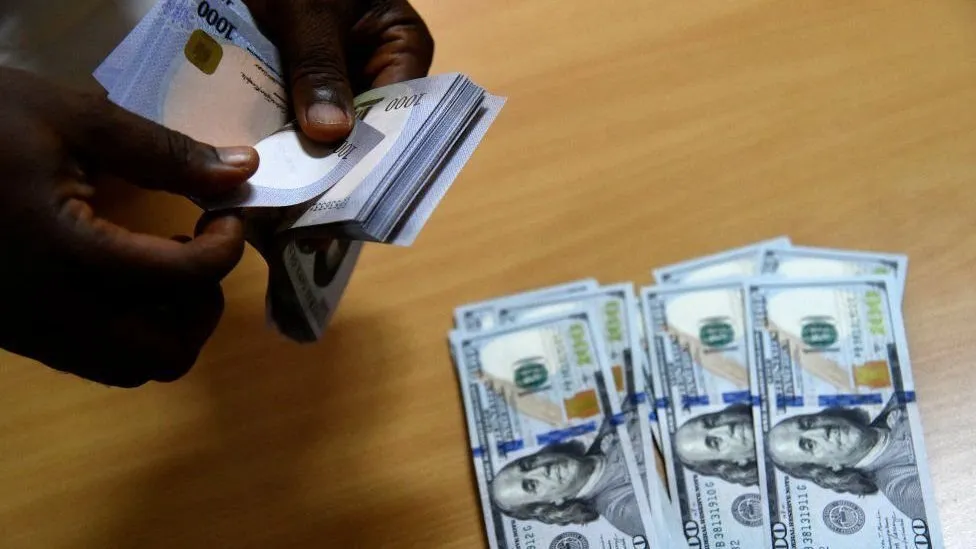The Naira faced a decline against the U.S. dollar in both the official and parallel markets on Tuesday, following a brief gain recorded in the official market the previous day.
The official market, as monitored by the Nigerian Autonomous Foreign Exchange Market (NAFEM), reported a 9.73% depreciation of the local currency, closing at N830.97 to a dollar at the end of Tuesday’s trading session. This marked an N80.83 loss, reflecting a 9.73% drop compared to the previous day’s closing rate of N750.14.
The intraday high witnessed was N1,121/$1, while the intraday low reached N600/$1, indicating a substantial spread of N521/$1.
Data from the official NAFEM window revealed a forex turnover of $122.46 million at the close of trading, reflecting a 30.72% decrease compared to the previous day.
Simultaneously, in the parallel forex market where forex is unofficially traded, the exchange rate depreciated by 0.44%, quoting N1,140/$1. Peer-to-peer traders, on the other hand, quoted around N1,146.08/$1.
To address the challenges and stabilize the exchange rate, the Central Bank of Nigeria (CBN) has implemented various measures, including raising interest rates and restricting access to foreign exchange. The effectiveness of these measures remains uncertain.
Financial Experts’ Perspectives:
Financial experts interviewed by Nairametrics emphasized the need for a comprehensive, multi-pronged approach to address the forex crisis. They outlined measures to boost domestic production, enhance market confidence, and implement sound fiscal and monetary policies.
The experts highlighted the importance of improving domestic production, particularly in the petroleum sector, by enabling private and public refineries to operate at full capacity. This move aims to reduce reliance on imported petroleum products, a significant factor contributing to forex demand.
Additionally, fostering domestic manufacturing and agriculture can further diminish the need for foreign exchange to acquire essential goods.
Mr. David Adonri, the Executive Vice Chairman of Hicap Securities Limited, stressed the significance of eliminating excessive importation pressure on the forex exchange market. He urged the government to enhance the security network to facilitate domestic production, reduce import dependence, and alleviate pressure on the Naira.
Adonri advocated for appropriate fiscal measures to close the supply gap in the economy, emphasizing that monetary policy measures alone may not rein in inflation.
Addressing currency speculators, he noted that eliminating scarcity would naturally deter speculation, and market dynamics should be allowed to discipline speculators rather than relying on administrative methods.


